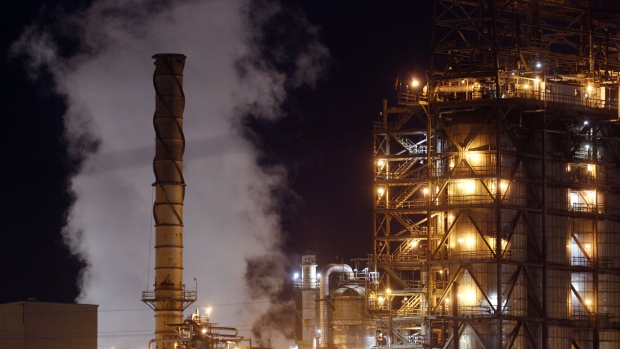Mar 14, 2024
Shell’s 20-Year Gap in Net-Zero Plan Worries Climate Activists
, Bloomberg News

(Bloomberg) -- Shell Plc says it’s committed to becoming a net-zero company by 2050, but a 20-year gap in the road map to get there has climate-conscious shareholder groups worried.
In a strategy update on Thursday, the company weakened its 2030 target for cutting its net carbon intensity, largely a consequence of selling its business supplying clean power to households in the UK and Germany last year. A potentially more significant change was buried deeper within the document, where Shell dropped altogether its emissions target for 2035.
“For investors, not having that clarity of what that pathway looks like now from 2030 to 2050 should be raising quite a lot of concerns,” said Nick Spooner, UK company strategy lead for the Australasian Centre for Corporate Responsibility, a shareholder advocacy group.
Last year, the carbon intensity of the products Shell sells was 6.3% lower than 2016 levels. That reduction will widen to between 9% and 12% this year and to 15% to 20% by 2030. Beyond that, the next signpost on Shell’s emissions road map doesn’t appear until 2050, and that’s for a 100% reduction.
The elimination of the 2035 goal raises questions about “how and whether” Shell will reach net zero, Spooner said.
“Getting rid of that target and also having weaker shorter-term targets for 2030 reduces the accountability of the CEO and the rest of the executive team,” said Spooner. This matters right now because “Shell has a 10-year planning cycle, so what is happening with this energy transition report” could affect emissions in 2035.
Shell was one of a handful of European oil and gas producers which laid out net zero plans in 2020, partly in response to growing pressure to governments and environmentally-minded investors. But the strategy has always been couched in uncertainty given the long time frames and unknowns around future oil and gas demand.
“Shell’s operating plans cannot reflect our 2050 net-zero emissions target, as this target is currently outside our planning period,” the company said in the footnotes of its strategy update. “In the future, as society moves towards net-zero emissions, we expect Shell’s operating plans to reflect this movement. However, if society is not net zero in 2050, as of today, there would be significant risk that Shell may not meet this target.”
Shareholders will have an advisory vote on the strategy at Shell’s next annual general meeting later this year. In 2021, when the strategy was first put to investors, 89% gave their support.
©2024 Bloomberg L.P.






